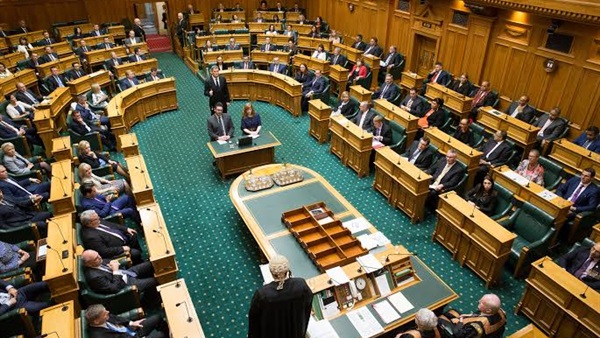New Zealand to vote in referendum on euthanasia

New Zealand is to become the first country in the
world to put euthanasia to a binding public vote after its lawmakers passed a
bill laying out what the country’s assisted dying regime would be.
The law, which would allow terminally ill people
with less than six months to live to choose assisted dying if approved by two
doctors, passed its final reading in parliament in the capital, Wellington, on
Wednesday by 69 votes to 51. It was a conscience vote, meaning that most
lawmakers did not vote along party lines.
But after two years of debate as it progressed
through parliament, the fate of the law is still uncertain; it will come into
effect only if the people of New Zealand approve it in a referendum at the
country’s 2020 election. A second referendum question, about recreational
cannabis, will also be on the ballot paper – in what will also be the first
time that a nation has put the issue to a binding public vote.
A third public vote, on decriminalising abortion – a
matter parliament is considering – has not been ruled out.
While a recent poll shows New Zealanders supported
some form of assisted dying regime – 72% of people surveyed in a 1 News Colmar
Brunton poll in July were in favour – opposition has been vocal. A record
39,000 public submissions were made while lawmakers were considering the
matter, with 90% of submitters opposed to it.
New Zealand’s parliamentarians have attempted to
pass assisted dying laws twice before without success. So many lawmakers wanted
to give speeches about the bill on Wednesday that debate stretched into the
evening.
“I stand here and say to all of you that we can do
better as a nation, we are a compassionate nation,” said Nikki Kaye, from the
opposition National party. “We need to pass this bill in the interests of
fairness and justice.”
She noted that the bill had become “incredibly
narrow” on its passage through parliament.
Patients will be blocked from accessing euthanasia
for reasons of age, disability, or mental illness, they cannot make written
consent to it in advance, and it cannot be suggested to them by doctors.
Others said the safeguards were not enough. Adrian
Rurawhe, from the governing Labour party, said views of New Zealand’s
indigenous Māori had not been properly
ascertained.
“It will
disadvantage Māori further in a system that already
disadvantages Māori,” he said, referencing
the major health and other inequities that Māori
people face.
Maggie Barry, a National party lawmaker who has been
a vocal opponent of the law, said supporters of it had been “dismissive and
rude” to people with disabilities. “They’ve been told they’re too expensive to
keep alive,” she said.
But the prospect of a public vote, and concerns
about the tone of the debate, preoccupied lawmakers as much as the ethics of
euthanasia did.
David Seymour, the bill’s sponsor and sole member of
parliament for the Act party, said New Zealanders’ “life experience” qualified
them to make the decision and rejected suggestions that lawmakers had abdicated
their responsibility by turning it over to the public.
Both euthanasia and cannabis will be put to
referendum questions because minor political parties made their votes for the
laws conditional on public votes being held.
Lawmakers from New Zealand First, a populist party
that holds the balance of power in New Zealand’s government, threw their
support behind the euthanasia bill in exchange for a referendum. Tracey Martin,
one of the party’s MPs, said voters had elected parties based on their
manifestos – not their consciences – and it would be wrong for parliament to
decide the matter.
“This is an important moment for the New Zealand
public,” she said. “They have never had a power like this, I believe, in their
lifetime. This is incredibly serious.”
Others called for respect and civility in the public
debate. Unlike in other controversial referendums of recent years – such as the
2016 Brexit vote – there will be no question of the law New Zealanders are
voting for; they will be asked whether or not they support the end of life
choice bill as passed by parliamentarians on Wednesday.
But such is the potential for incorrect or malicious
information skewing the debate that New Zealand’s justice ministry plans to
convene a special team to combat “misinformation and manipulation” in the
lead-up to the election, Radio New Zealand reported.
It is the first time public servants in New Zealand
will be asked to play such a role.
Holding two referendums at the same time as an
election would likely boost voter turnout, said Jonathan Boston, a professor of
public policy at Victoria University, Wellington. But he did not believe moral
issues should be a matter for public vote.
“If you’ve got really quite controversial issues
being determined by referenda at the time of a general election, there’s a risk
this will take attention away from important election issues, with the
referenda issues dominating the debate,” he said.





